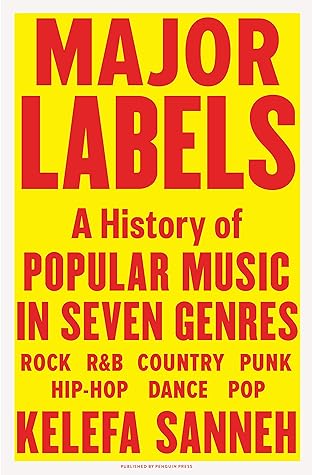Ever since the sixties, rock ’n’ roll had been the most prestigious form of popular music, beloved both by “rock critics” (the term itself suggested this bias) and by everyday fans, many of whom were inclined to accept the idea that mainstream pop music, no matter how much they loved it, was relatively inconsequential. The new pop revolution encouraged listeners of all sorts to question this hierarchy: to consider the possibility that rock ’n’ roll was boring, and that so-called pop music was the future.
Welcome back. Just a moment while we sign you in to your Goodreads account.


